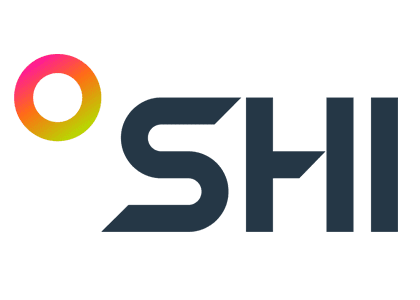Diversity determines profits: 3 authentic approaches you want to know:
Experts agree: Inclusion benefits your balance sheet. Here’s how to make it last.

In the world of technology, DEI has become just as common an acronym as MFA or SaaS, and is just as important, namely to your bottom line. What many now realize about diversity, equity, and inclusion is how pivotal these ideas are to an organization’s long-term interests. According to Forbes, on average, companies that raised the share of female partners by 10% have simultaneously boosted revenues by 10%. Increasing the number of female leaders also strengthened employee retention rates. And that’s just the half of it.
By giving minority groups an influential voice, organizations can avoid the consequences of homogenous thinking and even reveal new revenue opportunities. Effectively, companies must plant a seed to one day grow a forest. Any organization can benefit from the insights grown from inclusivity, starting with these three easy approaches.
Employee resource groups
At the risk of adding another acronym to the repertoire, ERG is one worth memorizing. Employee resource groups are employer-recognized workplace gatherings that support employees’ beliefs, backgrounds, or identities. Think of them as the seeds of change that most organizations are already planting. Over 90% of Fortune 500 companies have enabled these groups, as reported by Forbes, fostering a sense of belonging that workers report benefits them holistically.
Amanda Hoffman, Manager of IT Quality Assurance at SHI, shares why the EMBRACE ERG (SHI’s LGBTQ+ Employee Resource Group) is important: “We celebrate our history, our victories, and our resilience. We share strategies for overcoming obstacles, both personal and professional. Together, we cultivate a supportive environment for LGBTQ+ employees, families, and allies.”
Similarly, Kevin Jean-Louis, Sr. Mobility Solutions Manager, who is part of SHI’s Black Culture Collective, speaks to the clear benefits of these groups, saying, “Representation helps to foster better communication and collaboration among colleagues, allowing the workplace to celebrate the differences in others, and not simply ignore them.”
Ultimately, when ERGs are ambitious with how members engage with the company, initiatives can be undertaken that advantage all involved. While the existence of ERGs is an important first step in DEI, it’s important to also consider exactly how to educate and advance those groups for the betterment of the whole organization.
Professional development
Enabling your employees – especially those who have historically been underserved – is vital to the development of your workforce. Professional development can lead to more engaged employees and less turnover, creating fertile soil from which future equitable leadership can spring. No seed can grow without water and sunlight too, and on that front, SHI could be shining on your behalf.
SHI offers corporate trainings through on-site, online, and on-demand offerings. Our professional development options include courses such as Communication Skills, Project Management, Agile, Critical Thinking, Collaboration, and Leadership. Pursuing these opportunities is an important step toward not just telling employees they have a voice but giving them opportunities to learn to use it as they branch out within the organization. Search the SHI course catalog to find the direction that is best for your deserving employees. However, organizations don’t grow in a vacuum, nor do they grow alone, which makes the next stage even more important.
Partner up
Your organization is growing in an ecosystem that can’t be ignored. Consequentially, you might encounter approaches and attitudes that may not be consistent with your own. Partnering with companies that share your values is a crucial way to foster sustainable change, not just in your personal environment but that of your industry as well. Before doing business, it is useful to consider potential partners’:
- Commitment to diversity in their hiring process and leadership teams.
- Support of local projects, communities, or charities.
- Dedication to their values within their products.
- Accolades from the wider business world recognizing them on these fronts.
In fact, SHI is the United States’ largest Minority/Woman Owned Business Enterprise (MWBE). We are also the only MWBE that maintains a fully staffed team dedicated to supplier diversity matters for our clients and vendor partners.
Below are some notable examples of organizations that SHI is proud to call strategic infrastructure partners. By teaming with us, we know you’ll feel the same about working with them too.
Cisco believes that, “impact is only real if it is sustainable, systemic, and inclusive across the full spectrum of diversity.” As a company, they believe that higher diversity brings with it increased innovation, and work to create an environment in which all employees are valuable. This shows in their many workplace accolades, such as scoring 100 on HRC’s Corporate Equality Index, being recognized as a Best Workplace for Women by Great Place to Work, as well as placing in the top three employers by Military Friendly™.
Dell maintains that Employee Resource Groups are essential to driving connection for employees. The company features 13 different ERGs spanning 76 countries, with 47% of team members participating in at least one. Within their workforce, 33.9% of individuals self-identified as women (a number they are looking to raise to 50% by 2030) and 15.4% have self-identified as Black/African American or Latino. Dell also scored a 100 on HRC’s corporate equality index.
Intel has a key objective to “expand the pipeline of technical talent” for both themselves and the industry at large. Notably, the company scored a perfect 100 on HRC’s corporate equality index. They are setting goals for 2030 to:
- Increase the number of women in technical roles to 40%.
- Double the number of underrepresented minorities and women in senior leadership roles.
- Grow the percentage of employees who identify as having a disability to 10%.
- Continue to support legislative action that protects equal rights and betters STEM education for those from underrepresented backgrounds such as Native Americans, African Americans, Hispanics, women, people with diverse abilities, veterans, and the LGBTQ+ community.
- Expand Digital Readiness by making technology fully inclusive around the world.
Microsoft has a strong commitment to increasing representation and to strengthening their culture of inclusion. When it comes to their workforce, Microsoft is happy to share that employees who identify as racial and ethnic minorities earn $1.006 for every $1.00 earned by their white counterparts. Women in the U.S. also earn $1.002 for every $1.00 earned by their male counterparts. Moreover, Microsoft has a Human Rights Campaign Equality Score of 100%.
Pure Storage feels very strongly about increasing employee representation for women and underrepresented groups while creating an environment of belonging in the workplace. Putting this in action, they increased the percentage of women and underrepresented groups hired in FY21 and have over 1,200 employees in six ERGs. Pure also participated in the Human Rights Campaign Corporate Equality index for the first time in 2022, receiving a 95.
Worth the work
Anyone who has tried to keep a plant alive knows that growth takes work and time. But as studies and testimonies show, the fruits of those labors around DEI are certainly worth the effort for employees and profits.
We are always here to help, especially if your organization is interested in:
- Cultivating a supportive environment.
- Professionally developing your employees.
- Collaborating with principled partners.
To learn more about SHI’s own approaches to DEI, be sure to check out our comprehensive ebook.




